Australia Says Its Dual National Detained In Iran
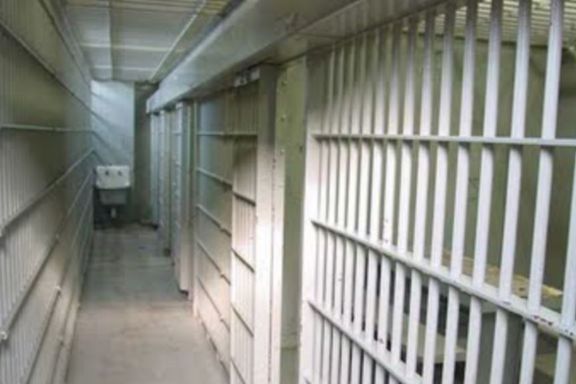
Australia says an Iranian-Australian dual national has been arrested in Iran amid the ongoing antigovernment protests.

Australia says an Iranian-Australian dual national has been arrested in Iran amid the ongoing antigovernment protests.
Australia’s Department of Foreign Affairs and Trade said the person had not been detained for taking part in demonstrations but confirmed that Australian officials have not been allowed to get in touch with the inmate to assess his welfare.
“The Australian government holds concerns for the welfare of one Australian-Iranian citizen believed to be detained in Iran,” said a department spokesperson, adding that “We continue to seek confirmation of their welfare, and consular access.”
The spokesperson reiterated that the Islamic Republic was refusing to accept Australia’s right to access as it does not recognize dual nationality.
Iran’s Judiciary Spokesman Masoud Setayeshi told a press conference November 22 that forty foreign nationals implicated in recent “riots” have been arrested, but he did not elaborate on the nationalities of those detained.
Iranian officials have repeatedly accused Western governments of stoking the protests over Mahsa Amini's death in police custody.
While the United States, Canada, the United Kingdom and the European Union have imposed sanctions on Iran in the last two months due to regime’s violence against protesters, Australia has not acted.
However, recently Australian Foreign Minister Penny Wong announced in a tweet that the country is determined to “continue to work with international partners and within government to increase pressure on Iran over its egregious human rights abuses.”
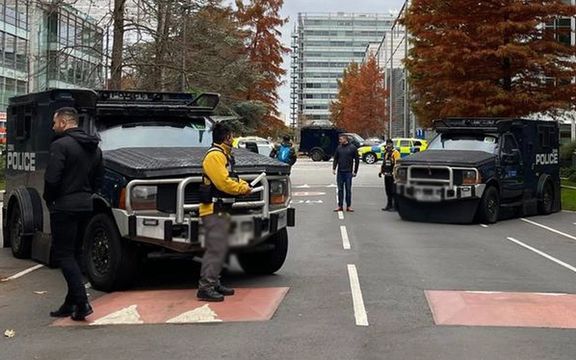
The Israeli Mossad alerted UK authorities about an impending Iranian plot to carry out terrorist attacks against Iran International’s journalists based in London.
Israel’s Channel 11 reported Monday, November 21, that Mossad informed Britain’s spy agency about the threats facing two journalists working for the London-based channel.
According to further information obtained by Iran International, threats against its journalists, revealed by the Metropolitan Police earlier this month, came from the same team that sought to target Israel’s former consul general in Istanbul, Yosef Levi Sfari, who was rescued by authorities and sent back to Israel.
In June, Israeli and Turkish media reported that a terror cell sent to Turkey by the Islamic Republic was busted, and its eight members who had entered the country with fake Tajik and Italian passports were arrested.
The agents were staying at the same hotel in which Levi Sfari and his partner Roni Goldberg were staying for their vacation, with reports alleging that their other targets were Israeli tourists. "The Iranian squad was caught red-handed at the last minute," the reports added. According to Turkey's National Intelligence Organization (MIT), the eight were arrested in raids on three houses in Istanbul’s Beyoglu district.
The mastermind of the plot was Rouhollah Bazghandi, the deputy head of IRGC’s counterintelligence (Unit 1500). A former senior IRGC official had earlier told Iran International that by using amateur agents to carry out the attacks against Israeli targets in Istanbul, Bazghandi dealt a heavy blow to IRGC Intelligence Organization. He was also in charge of thwarting plots against Iran's security officials inside Iran; however, his involvement in the Turkey plot, and apparently his absence, among other reasons, turned Iran into a safe haven for Israeli Mossad agents who launched several sabotage operations and assassinations.
An intelligence source told Iran International that Bazghandi is the man who was in charge of the failed attack against its journalists.
London’s Metropolitan Police formally notified two of our journalists early in November of “imminent, credible and significant risk” to their lives and those of their families. Other staff members were informed directly by the police of separate threats.
The Scotland Yard has also placed armed police forces outside Iran International’s headquarters since mid-November, following further public threats by the Islamic Republic’s authorities – such as the intelligence minister and top Revolutionary Guard’s commanders against the channel.
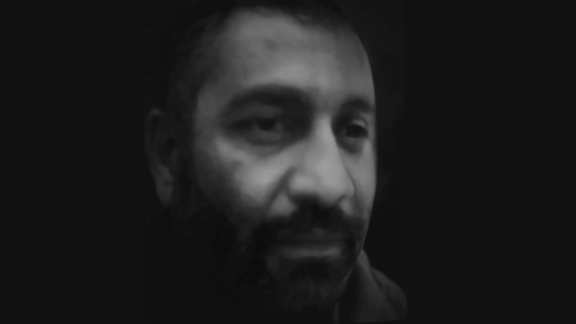
Britain’s MI5 said on November 16 that UK authorities have discovered at least 10 “potential threats” since January to “kidnap or even kill British or UK-based individuals perceived as enemies of the regime.”
Faced with nationwide antigovernment protests since mid-September, the Islamic Republic has blamed foreign-based Persian broadcasters such as BBC Persian and Iran International of “fomenting unrest”, while all media in the country are under tight government control and present protesters as “rioters” and “terrorists”.
Iran’s Intelligence Minister Esmail Khatib on November 9 said the Islamic Republic regards Iran International as “a terrorist organization,” adding that its workers and anyone affiliated with the channel will be pursued by the Ministry of Intelligence.
Iran has a long record of targeting dissidents and independent journalists who found refuge in other countries. In the latest example of terror operations abroad, Iranian intelligence abducted dissident journalist Ruhollah Zam who was visiting Iraq in 2019 and took him back to Iran where he was executed in 2020.
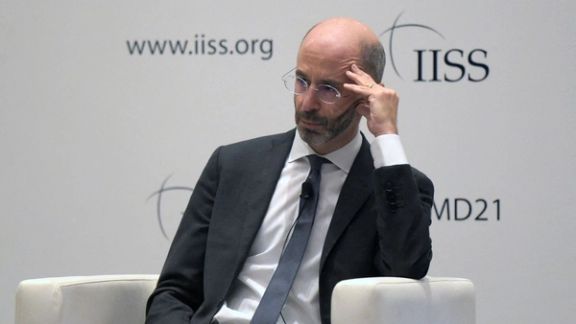
The United States’ top diplomat for Iran has slammed the Islamic Republic for reports about sexual assaults on protest detainees, saying it is “unspeakable”.
Robert Malley, the US special envoy for Iran, said in a tweet Tuesday that a report by CNN describes “unspeakable acts of sexual violence by Iranian officials in detention centers. It’s a reminder of what is at stake for the Iranian people - and of the lengths to which the regime will go in its futile attempt to silence dissent.”
In an investigation published by CNN on Monday, covert testimony revealed sexual violence against protesters, including boys, in Iran’s detention centers since the start of the unrest.
In some of the cases CNN uncovered, the sexual assault was filmed and used to blackmail protesters into silence, according to sources who spoke to the victims.
In reaction to this report, State Department spokesperson Ned Price also harshly criticized the Iranian regime, saying that Washington continues to hold the perpetrators accountable.
Price said Tuesday that the US “is disgusted by the reports and eye-witness accounts of protestors, including minors, being sexually assaulted while in the custody of law enforcement.”
“Iranian authorities' use of sexual violence as a tool for protest suppression brings into stark contrast the bravery of Iran's protestors in the face of such reprehensible measures to intimidate them and end the protests,” added Price.
Condemning the brutality of the clerical regime, Price added that it appears no act is beneath the Islamic Republic's leadership in their attempts to silence dissent.
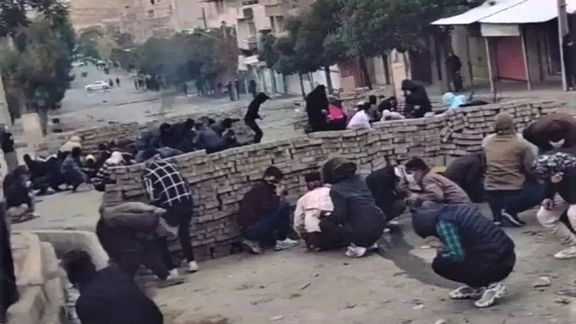
A hardliner Iranian lawmaker has confirmed that the Revolutionary Guard’s Ground Forces have been deployed to Kurdish areas to crack down on protesters.
Mohammad Esmail Kowsari representing Tehran in the parliament who was a commander of the IRGC’s Sarallah Headquarters tasked with the capital’s security, claimed in an interview Wednesday that “Kurdish separatist groups, especially the Democratic Party of Iranian Kurdistan (PDKI), Komala, and Pejak (the Free Life Party of Kurdistan)” have been stationed in the Iraqi Kurdistan region and sought to take control over some areas in Iran’s Kordestan province.
Kowsari claimed that the presence of Kurdish groups is the reason behind the deployment of ground force to the western parts of the country, so that they can overcome them and establish security at the borders.
Tuesday night, an officer from the Border Guard Force of the Iraqi Kurdistan Region confirmed to Iran International that the IRGC ground forces have closed the Haj Omran Border Crossing, stationed a large number of troops equipped with heavy weapons there, and were preparing for ground operations inside Iraqi Kurdistan.
The Islamic Republic calls Iranian Kurdish armed groups in sheltering in Iraq, "terrorist groups" or "anti-revolutionary" but these groups say that the goal of their armed campaign is "defending the rights of the Kurds".
Generally, the Kurdish parties − including Komala and the Kurdistan Democratic Party of Iran (KDPI) − favor Kurdish autonomy within a federal Iran. Pejak (the Free Life Party of Kurdistan), an affiliate of the Kurdistan Workers’ Party, or PKK, formed in Turkey but also based in northern Iraq, has generally favored a unified, independent Kurdistan uniting Kurds in Syria, Iraq, Turkey, and Iran.
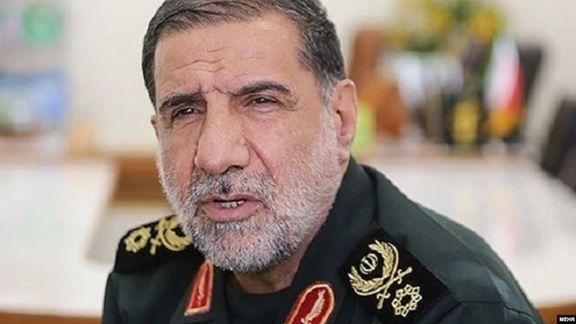
Since last week, the Islamic Republic has intensified its repression of Kurdish-majority cities and towns in western provinces of the country following reports that parts of some small towns have fallen into the people’s hands. The majority of Iran's 10 million Kurds live in the western parts of the country. On Tuesday, the IRGC again hit a base that it claimed belonged to "separatist terrorists" in Iraq using missiles and kamikaze drones.
The regime stepped up attacks against Iranian Kurds sheltering in Iraqi Kurdistan on the pretext that “separatist” Kurdish groups are fanning the flames of conflict in Iranian Kurdish cities by supporting the protesters, leading to a global outcry that is gaining a new momentum following the European Parliament’s announcement on Monday that it would not keep direct contact with the Islamic Republic authorities.
In a statement on Tuesday, US State Department Spokesperson Ned Price condemned the Islamic Republic’s “repeated and brazen violations of Iraq’s territorial integrity,” adding that “Iran’s violations of Iraqi territorial integrity continue with lethal attacks carried out against the Iraqi Kurdistan Region from November 20 through 22.” The US also called on Tehran to refrain from further threats and violence.
Meanwhile, Turkey has also renewed its attacks on Kurdish targets in Iraq and Syria, a week after a bombing in Istanbul which it blamed on Kurdistan Workers’ Party, or PKK, as well as Syrian Kurdish groups affiliated with it, an allegation denied by those groups.
Iranian Interior Minister Ahmad Vahidi, himself an IRGC commander, held a conversation with his Turkish counterpart earlier in the month, voicing support for “a stable and strong Turkey.” He said that Iran and Turkey have common enemies, calling for more serious cooperation in dealing with “those who make the two countries unsafe.”
Also on Tuesday, Iraqi Prime Minister Mohammed Shia' Al Sudani also denounced the Turkish and Iranian attacks, saying “The attacks were launched without taking Iraq’s permission, that’s why we decry these attacks whether carried out by Turkey or Iran.”
A member of the Iraqi Parliament told Iran International Wednesday that the Parliament will once again hold a session on Thursday to discuss the missile and drone attacks of Iran and Turkey. The parliament has held at least two sessions on the issue in the past three days.
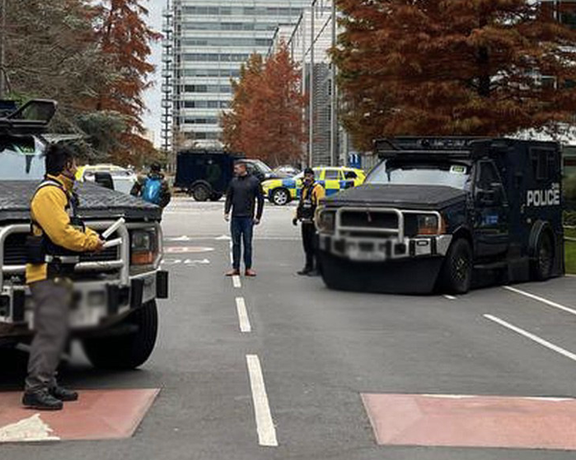
Israeli media say the Mossad informed Britain’s spy agency about threats against Iranian citizens in Britain, especially journalists.
Israel’s Channel 11 reported Monday that the information was about the threat facing two journalists working for Iran International TV channel in London.
In early November, Iran International in a statement said that two of its British-Iranian journalists have been notified of serious threats against them.
“The Metropolitan Police have now formally notified both journalists that these threats represent an imminent, credible and significant risk to their lives and those of their families. Other members of our staff have also been informed directly by the Metropolitan Police of separate threats,” added the statement.
The network blamed the IRGC saying, “These lethal threats to British citizens on British soil come after several weeks of warnings from the IRGC and Iranian government about the work of a free and uncensored Farsi-language media working in London.”
Last week, the Scotland Yard positioned armed vehicles outside the Iran International building in London.
Britain’s MI5 said on November 16 that UK authorities have discovered at least 10 “potential threats” since January to “kidnap or even kill British or UK-based individuals perceived as enemies of the regime.”
Faced with nationwide antigovernment protests since mid-September, the Islamic Republic has blamed foreign-based Persian broadcasters such as BBC Persian and Iran International of “fomenting unrest”, while all media in the country are under tight government control and present protesters as “rioters” and “terrorists”.
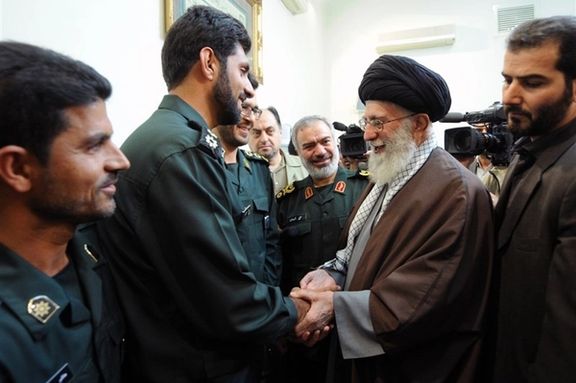
Government media in Iran carried a statement by the Revolutionary Guard saying that one of its senior officers has been killed in Syria.
The IRGC statement Wednesday said that Colonel Davoud Jafari, a senior aerospace commander lost his life in a roadside bomb blast on the outskirts of the Syrian capital, Damascus.
The IRGC said the incident took place on Monday, accusing Israel of executing the attack and pledging to respond to it.
There are no details about any other casualties in the explosion, and IRGC’s claim of a roadside bomb cannot be verified.
In March, two other IRGC officers were killed in an airstrike on the outskirts of the Syrian capital and Jafari could have also been killed in a similar strike that Israel carried out in recent days.
A week later, Iran targeted what it called “Israeli facilities” in Erbil in northern Iraq with missiles.
Iran has been deeply involved in the Syrian civil war for more than a decade, deploying tens of thousands of its own forces as well as hired Afghan, Iraqi and Pakistani Shiite fighters, who helped save Bashar al-Assad’s regime, with help from Russia.
However, since 2017 Iran has been trying to set up a presence on the Israeli border, possibly to create a new front to complement what the Lebanese Hezbollah has in southern Lebanon against Israel.
The Israeli air force has conducted hundreds of strikes against Iranian bases in Syria since 2017, targeting mostly weapons transfers and warehouses.